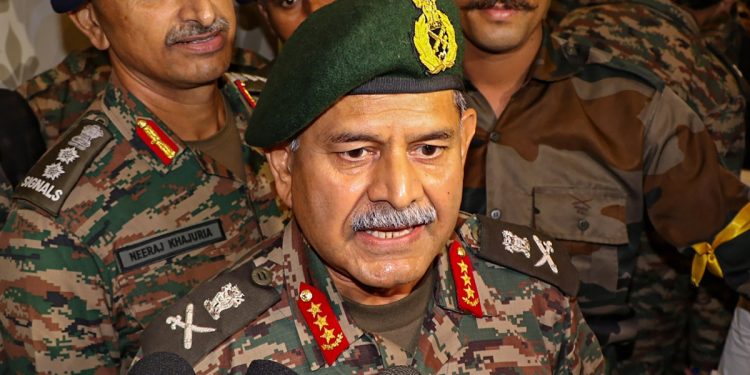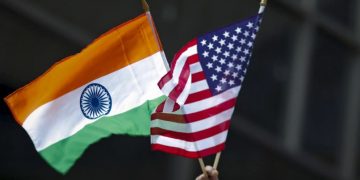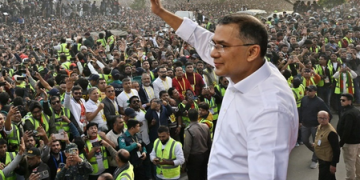I t is prudent for officials in high positions to speak with care and caution, for their words carry the weight of their position and responsibilities and can make or break any situation. Any loose talk on their part can have far-reaching consequences. This is especially true for high-ranking diplomatic and military officials as their statements are taken into account by leaders in other countries as official statements from the government, no matter if they are foes or friends.
During a visit to troops stationed in Rajasthan on 4 October, Indian Army Chief General Upendra Dwivedi issued a stark warning to Pakistan, declaring that India would no longer exercise restraint if Islamabad continued to support terrorism. “India is fully prepared this time… We will go a step further, and Pakistan will have to consider whether it wants to remain on the world map.”
Separately, Air Chief Marshal AP Singh stated that Indian airstrikes during Operation Sindoor destroyed or damaged at least a dozen Pakistani aircraft, including US-supplied F-16 jets. He dismissed Pakistani claims of Indian losses as “fanciful stories.” On the same day, Defence Minister Rajnath Singh, speaking at an event in Hyderabad, reinforced India’s readiness to act decisively across borders if national security is threatened. Singh also warned Pakistan against any misadventure in the Sir Creek sector, a disputed 96-km tidal estuary between Gujarat’s Rann of Kutch and southern Pakistan. He stated that any such move would invite a “decisive response” strong enough to change both “history and geography.” In response, Pakistan’s Defence Minister Khawaja Asif described these remarks as “delusional, provocative, and jingoistic,” and issued his own threats. Asif warned that India would be “buried under the wreckage of its warplanes” if it provoked Pakistan further. “These statements from Indian political and military leadership are a failed attempt to restore their tarnished reputation,” Asif said. “After a decisive defeat, with a score of 0-6, if they try again, the outcome will be even worse.” Though Asif did not clarify the “0-6” reference, it appears to refer to unverified Pakistani claims of having downed six Indian fighter jets during Operation Sindoor—claims for which Islamabad has offered no evidence. It is important to note that such rhetoric by senior military officials risks blurring the lines between military professionalism and political positioning. It is inappropriate and dangerous for serving military leaders to make such aggressive public pronouncements, which can push the country to yet another military escalation. Ever since the ceasefire between India and Pakistan was reached after four days of military confrontation, high-ranking Indian military officials have often made such public statements.
Also Read: Double Standards
When General Dwivedi says that “India is fully prepared this time” it also sends across a message that the nation’s military was unprepared for the confrontation in May. This kind of heated exchange between the two nations’ military and political leaders will only worsen animosity between the two nuclear-armed neighbours. India-Pakistan relations have sharply deteriorated following the Pahalgam terror attack of 22 April when 26 innocent tourists were massacred by Pakistan-sponsored terrorists.
In response, New Delhi took several diplomatic steps, including suspending the Indus Waters Treaty that had till then survived three wars. India has also made it clear that any future dialogue with Pakistan will centre solely on the return of Pakistan-occupied Kashmir (PoK) to India. It may be noted that India seemed to have lost the narrative war in convincing world leaders of Pakistan’s complicit role in the terror attacks.
Meanwhile, Pakistan has received funds in billions of dollars from the International Monetary Fund and signed a military deal with Saudi Arabia called the Strategic Mutual Defence Agreement, whereby it will now get all backing from the Saudi nation in the eventuality of a war. With further plans to form a military alliance among various Moslem nations, Pakistan seems focused on strengthening diplomatic relations and forming strategic military partnerships. India needs to focus on its foreign relations and building diplomatic friendships at the global stage. India’s relations with the US have soured in recent times, especially after Operation Sindoor, and India repeatedly refuting US President Donald Trump’s claims of being the peacemaker and averting a war between the two nuclear-armed neighbours.
India and Pakistan have fought three major wars and numerous skirmishes since 1947. Any further escalation in rhetoric, particularly from top officials, risks destabilising the fragile ceasefire and regional peace, something both nations can ill afford at this stage.






































